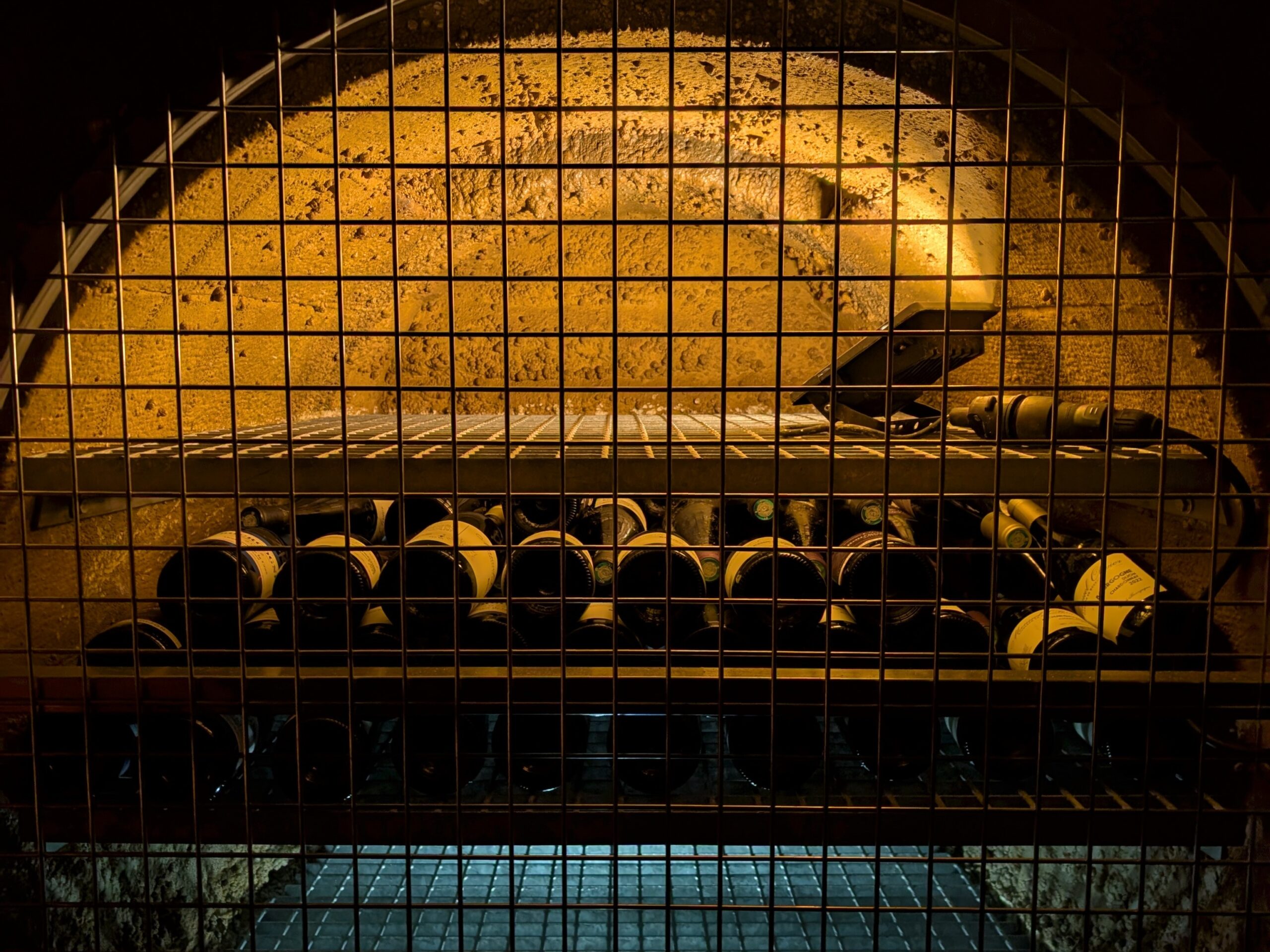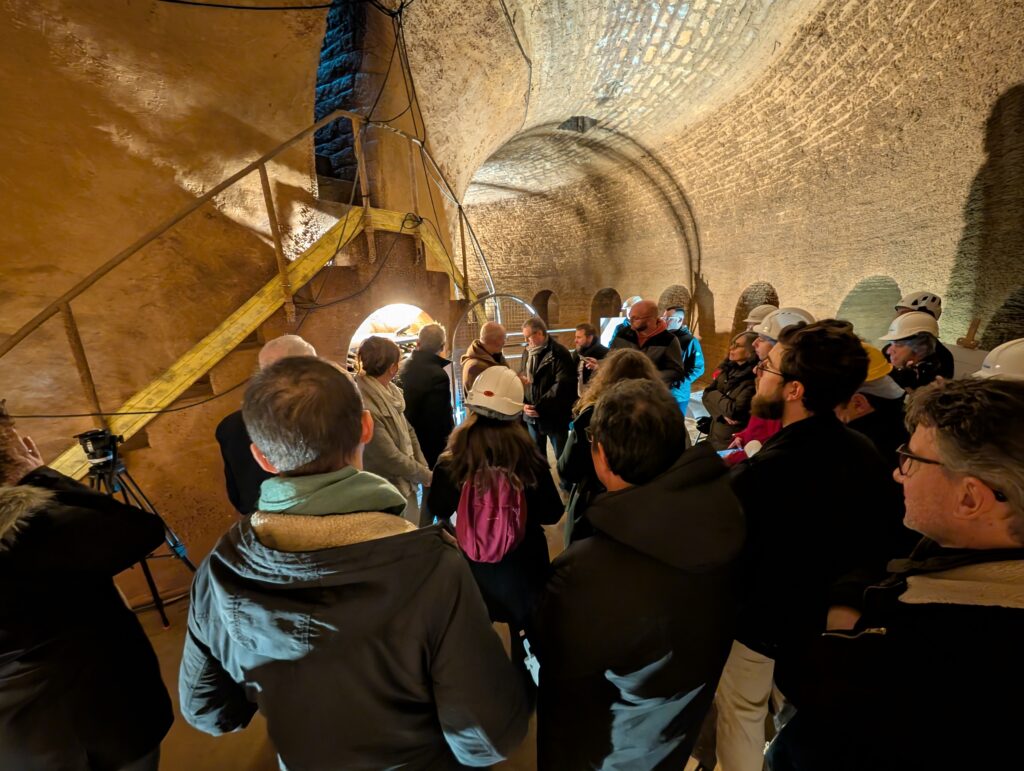Wine bottles age at the bottom of the Darcy reservoir in Dijon

Since Friday 24th January 2025, researchers at Université Bourgogne Europe have been conducting a unique and unusual oenology experiment. Forty bottles of Dijon wine have been immersed in the Darcy drinking water reservoir to study how the wine changes over time when the bottles are kept immersed. These bottles, along with their cellar-stored counterparts, will be studied for ten years by researchers from the Centre des Sciences du goût et de l’alimentation (CSGA) and the PAM laboratory at the Institut Universitaire de la Vigne et du Vin Jules Guyot.
This initiative is part of a collaborative project between Dijon, Odivea and Université Bourgogne Europe. The Darcy reservoir, the oldest drinking water reservoir in France, is now home to these bottles of wine from the Manuel Olivier and La Cras estates. The wines, Pinot Noir and Chardonnay, are immersed in water at 14 degree Celsius, and divided into four separate samples.
A project to promote local tradition and scientific research

This project has a dual purpose: to celebrate both Dijon’s wine-growing tradition and the importance of water in this region. The scientists will take advantage of the annual emptying of the reservoir each winter to analyse the wine samples and monitor their evolution. ‘We take a few millilitres each year to analyse the ageing process and compare the chemical changes with those of the same wines stored in a traditional cellar,’ explains Géraldine Lucchi, research engineer on the CSGA’s ChemoSens platform.
The results of this experiment are expected in ten years’ time, a period that could offer new perspectives on the ageing of wine in immersion.
A controversial but promising method
Keeping bottles of wine in water is not a new idea. In fact, a number of similar initiatives have been implemented over the last fifteen years (particularly at sea), but the practice is still the subject of debate, and there are very few scientific results to show the real impact on wine ageing. Régis Gougeon, professor of chemistry and oenology at the Institut Jules-Guyot, points out that some producers claim that immersion accelerates the ageing of wine, but the results of the work he has been carrying out for several years on immersion at sea suggest the opposite effect. Manuel Olivier, one of the winemakers involved, is very confident about the success of this experiment.
‘It’s a bit like a bottle in the sea,’ he jokes. He adds optimistically: ‘Who knows, in 20 years’ time, we could have over 100,000 of them in the Darcy reservoir!’